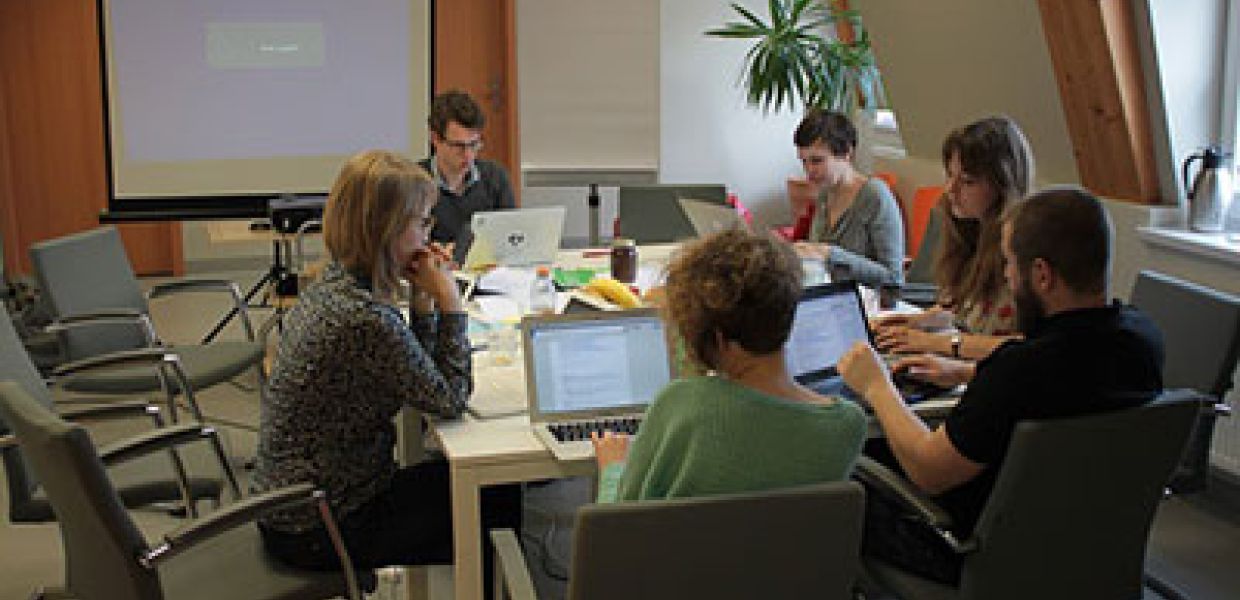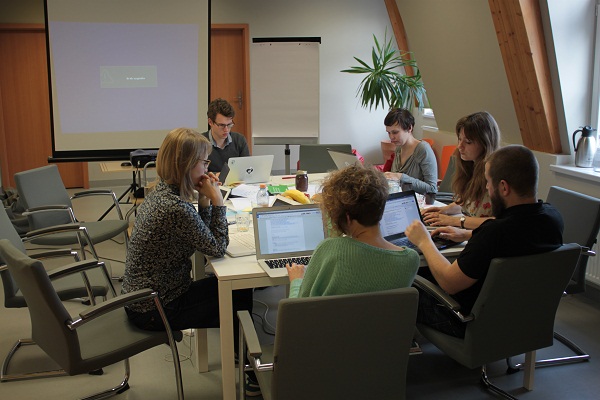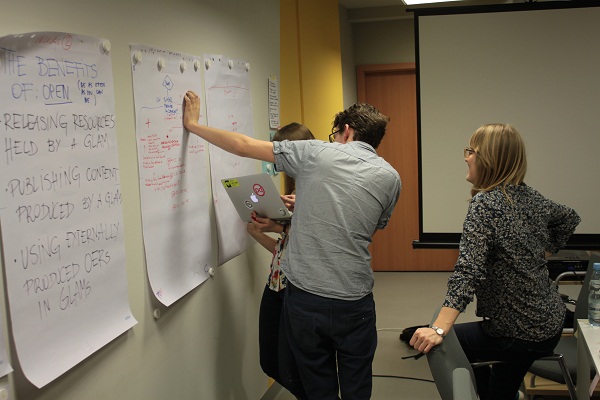Open Data Day


Participants at the CCtoolkits Poland event
This weekend on 22 February, the international Open Data Day is celebrated again. On this day, various initiatives relating to open data are organised to bring programmers, data journalists, designers and statisticians from around the world together to create applications, open up data, create visualisations and publish research conducted using open public data. To find an event near you, see their wiki page.
The Open Data Day was first organised a couple of years ago, and the organising groups focussed mainly on data from governments. In the years after that, more and more topics were discussed and addressed such as scientific data, spending data and cultural heritage. In recent years, the realisation that the data and content from publicly funded memory institutions have to be made available to the public without any restrictions has found common ground in the entire cultural sector. We see more and more institutions that digitise their material, making their collection available under an open licence. But why do they do that? What are the benefits of sharing your carefully maintained collection with the world?Just to mention a few:
Fulfill your public mission
Every publicly funded institution has the mission to serve the public as best as they possibly can. By making their collections openly available, they can reach a massive new audience and fulfill their mission as best as possible. Institutions that publish their material in an open way have seen it being re-used in a variety of new places such as Wikipedia, educational apps and websites, or innovative new apps by the creative industry. This has resulted in millions more views of their collection and not only benefitted the public, but also has resulted in more recognition for the providing institution.

Europeana members help create a Creative Commons toolkit for cultural institutions
Connect and contextualise your collection and let people do the same
Cultural objects travel around the world. It is impossible to ever get all of Van Gogh’s paintings in one room. But with the use of the internet, it is possible to bring all the artworks from all over the world together and allow the public to explore and study the material. Curators can help the audience to find the most relevant material and let the audience use it in ways you as an institution would never think of. It allows scholars, historians, artlovers and anybody else to find new connections between artworks, bring them into new contexts and tell new stories about their heritage, and that of others.
Europeana’s support for Open Data
Ever since the start of Europeana, the foundation has endorsed the principles of open data and encouraged cultural institutions to adopt open licences, or make clear to the audience that the artwork is out of copyright because of its age. In the Europeana whitepaper ‘The Problem of the Yellow Milkmaid,’ more arguments are being presented to institutions for opening up their collections. We therefore provide consultancy and documentation such as the Public Domain Charter and a clear explanation about how institutions can license their material. For the Europeana Creative Challenge, a couple of pilot projects were created to show the potential of bringing material from a variety of sources together. The Challenge themes include history education and natural history.
CCtoolkits
In the run-up to the Open Data Day, Europeana members participated in the creation of a Creative Commons toolkit for cultural institutions. The event, organised by Creative Commons Poland, aims to provide institutions with a set of documentation, arguments, presentations and case studies that show the benefits of open data for cultural institutions. For more information about the project see: http://cctoolkits.com/ or follow the hashtag #cctoolkits on Twitter.
If you want to know more about the benefits and potential, but also the issues and concerns of open data, or simply need more information as to whether you can publish your data open and the best way possible to do so, feel free to get in touch with us. Please email Joris Pekel with your enquiries and comments.
(Images by Mik Krakow CC-BY-SA)
